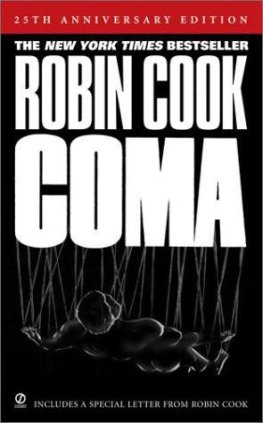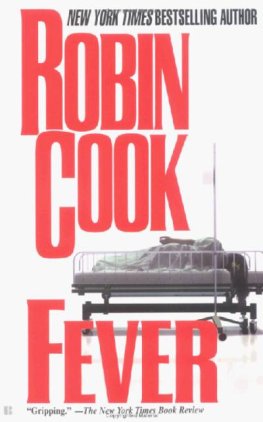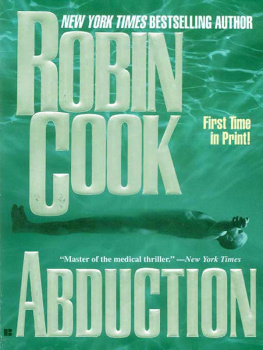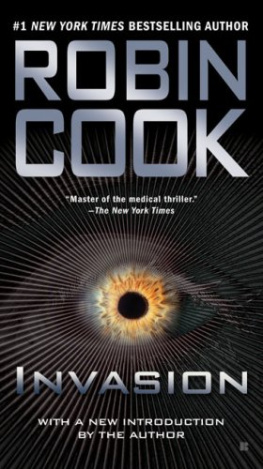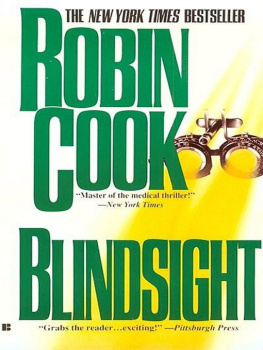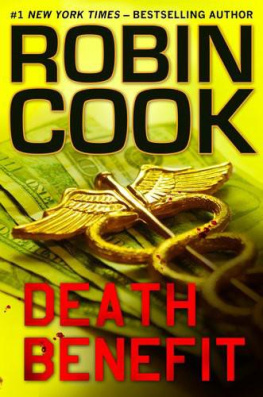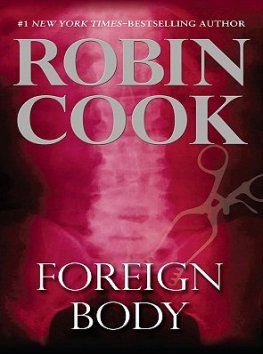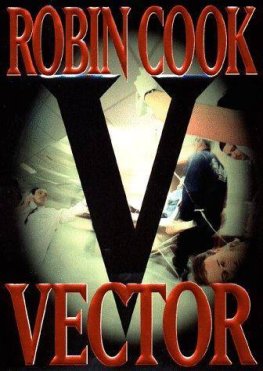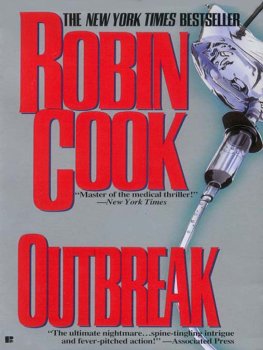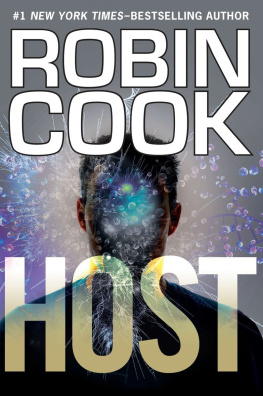ACKNOWLEDGMENTS
As per usual, the writing of Cure required the help of many friends, colleagues, and even strangers who were willing to take a phone call out of the blue and field a question. I am truly lucky to have access to a wide variety of experts who are graciously willing to give of their time. I thank you all. Those whom I would especially like to acknowledge for having demonstrated exceptional patience are (in alphabetical order):
Jean E. R. Cook, MSW, CAGS, psychologist
Joe Cox, J.D., LLM, tax, estate-planning, and corporate law
Rose A. Doherty, A.M., academician
Mark Flomenbaum, M.D., Ph.D., forensic pathologist
Tom Janow, detective, NYPD
Carole Meyers, research assistant, OCME, NYC
Marina Stajic, Ph.D., director of toxicology, OCME, NYC
MARCH 25, 2010
THURSDAY, 5:25 a.m.
Laurie Montgomery rolled over onto her side to look at her alarm clock. It wasnt quite five-thirty in the morning, and the alarm wouldnt go off for almost another half-hour. Under normal circumstances she would have been pleased to be able to roll over and go back to sleep. All her life shed been an incurable night person who couldnt fall asleep and had even more difficulty waking up in the morning. But this was not going to be a normal day. It was going to be the first day back to work after an unexpectedly long maternity leave of nearly twenty months.
After glancing briefly at her husband, Jack Stapleton, who was sound asleep, Laurie gently slid her legs out from beneath the down comforter and placed her bare feet on the ice-cold wood floor. She thought briefly about changing her mind and climbing back under the warm covers. But she resisted and instead clutched Jacks T-shirt more tightly around her midsection and ran silently into the bathroom. The problem was that there was no way shed be able to go back to sleep, as her mind was already going a mile a minute. She felt great turmoil stemming from her ambivalence about going back to work. Her main worry was for her just-over-one-and-a-half-year-old son, John Junior, and whether it was appropriate to leave him with a nanny for what would often be long days. But there was also a personal issue concerning a real fear of competence after such an unexpectedly long break: Would she still be able to handle her job as a medical examiner at what she thought was the most prestigious ME office in the country, if not the world?
Laurie had been working at OCME, or Office of the Chief Medical Examiner, in the city of New York for almost two decades. Self-confidence had always been an issue with her, going back to her teenage years. When shed first started work at OCME, shed worried about her competence at such an extremely challenging and demanding position, and shed not overcome the concern for years, far past the time that her colleagues had dealt with similar fears. Forensic pathology was a field where book learning was not enough. Intuition played a major role in being good at practicing it, and intuition came from constant experience. Every day a good forensic pathologist was confronted with something he or she had never seen before.
Laurie studied herself in the mirror and groaned. From her perspective she looked terrible, with dark circles under her eyes and a pallor that was more suited to one of her patients. Motherhood had been more difficult and exhausting physically and mentally than she had ever imagined, particularly having had to deal with a serious, often fatal illness. At the same time, it had also been more rewarding.
Taking her robe from its hook on the back of the door and pulling it on, she slipped her feet into her mules with the pink puffs over the toes. She smiled at the slippers. They were the sole reminder of the time when she could feel sexy with lingerie and enjoy the feeling. Vaguely she wondered if that feeling would ever come back. Becoming a mother had changed her sense of self in a number of domains.
Back out in the hall, Laurie padded down to JJs room. The door was ajar, and she walked into the room, which was bright enough for her to see. Dawn was approaching, but more important there were a number of night-lights conveniently spaced along the baseboards. Thanks to her mother, the room was decorated with riotous blue wallpaper and matching curtains covered with images of airplanes and trucks.
The furniture consisted only of a rocking chair, which Laurie had used for breast-feeding, a bassinet swathed in eyelet, and a crib. The bassinet was still there for sentimental reasons, as was the rocking chair, although she used the rocker occasionally when JJ was fussy and needed her presence to fall asleep.
Moving over to the crib, Laurie gazed in at her son, thankful for his healthy complexion. With a shudder she could remember distinctly when it hadnt been so. At the age of two months JJ had been diagnosed with high-risk neuroblastoma, a very serious and often deadly childhood cancer. But Laurie had been able to thank the lucky stars, or God, or whomever or whatever, that the cancer had disappeared. Whether it had been through the divine intervention of a faith healer in Jerusalem, the dedication of the doctors at Sloan-Kettering, or the fact that neuroblastoma can, on occasion, spontaneously resolve, Laurie would never knownor care, if truth be told. The only thing that mattered to her was that JJ was now a normal one-and-a-half-year-old boy whose growth and development, despite chemotherapy and what was called monoclonal antibody therapy, had reached normal percentiles in all aspects, enough for Laurie to consider returning to work.
Glancing in at the peacefully sleeping child, a smile spread across Lauries face despite the concerns and ambivalence she was suffering about going to work. JJs angelic face reminded her of a conversation shed had with Jack just the previous evening. It had started when they had both gone into JJs bedroom to check on the baby before going to bed themselves. As they gazed at the boy, she admitted something shed never mentioned before to anyone: She was so certain that JJ was the most beautiful child in the world that whenever she chatted with the other neighborhood mothers at the playground across the street, she couldnt help but wonder why someone had never remarked about it. Its so obvious, shed said to Jack.
To her surprise, Jacks response had been to break out in a guffaw so loud she had to caution him not to wake the baby. It wasnt until they had ducked out into the hall that Jack explained his reaction. By then Laurie was indignant, feeling as if Jack was making fun of her.
Im sorry, he said. Your comment tickles my funny bone. Dont you realize that all the mothers feel exactly the same?
Lauries indignation faded rapidly, as did her frown.
A mothers love must be somewhere in our genome, Jack had continued. Otherwise we as a species would never have made it through the ice age.
Snapping herself back to the present, Laurie became aware that she wasnt alone in JJs room. Turning her head, she found herself staring into Jacks shadowed face. All she could really see were the whites of his eyes, although there was enough light to appreciate that he was buck naked.
Youre up early, Jack said. He knew Laurie liked to sleep late, and it was part of the Stapleton routine for him to get up first, shower, and then nudge Laurie out of bed. Are you all right?
Nervous, Laurie admitted. Very nervous!
What on earth about? Jack questioned. Leaving JJ with Leticia Wilson? Leticia Wilson was a cousin of Warren Wilson, one of the local men with whom Jack regularly played basketball. Warren had suggested her to Jack one recent afternoon when Jack had mentioned they were looking for a nanny so that Laurie could go back to work.


